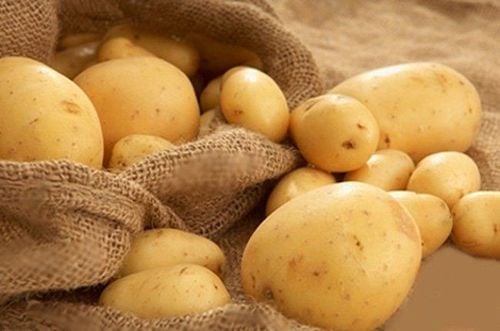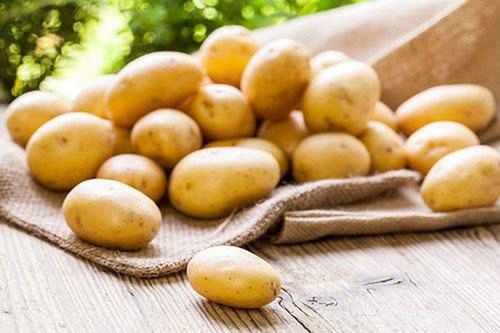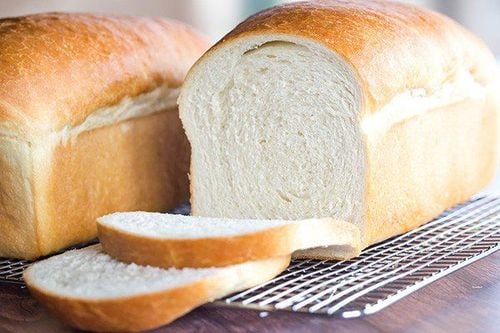This is an automatically translated article.
Potatoes are a great source of carbs and fiber. They can be prepared in many ways such as: Baked, boiled, fried or dehydrated. Proper storage can prolong the shelf life and limit potato sprouting, spoilage and waste.
1. How to store potatoes in a cool place
Storage temperature can be considered as one of the factors that significantly affect the shelf life of potatoes. If potatoes are stored between 6–10°C, they will keep for many months without spoiling.
In addition, storing potatoes in cool, air-conditioned conditions can also help delay potato germination - one of the first signs of spoilage.
Research has shown that storing potatoes at a cool temperature increases their shelf life by four times compared to storing them at room temperature. At the same time, storing potatoes at low temperature also helps to preserve vitamin C content for longer (4 months). In contrast, potatoes stored at warm room temperature lost almost 20% of their vitamin C after 1 month.
2. Keep away from light
Sunlight or fluorescent light can cause potato skins to form chlorophyll and turn green. Although the chlorophyll that turns potato skins green is harmless, exposure to the sun can produce high levels of the toxic chemical solanin.
Solanine has a bitter taste and causes a burning sensation in the mouth or throat of people who are sensitive to it. In particular, solanine is potentially toxic to humans when consumed in high concentrations, causing symptoms such as nausea, vomiting and diarrhea.
Currently, when using potatoes, many countries have mandatory guidelines to limit the solanin content in commercial potatoes to less than 200 mg/kg. Solanin is almost exclusively located in the skin and the first 3.2 mm of the meat.
3. Do not store raw potatoes in the refrigerator or freezer
Although cool temperatures are ideal for storing potatoes, refrigeration and freezing are not optimal options. Too low a temperature can cause cold sweetening and occurs when some of the starch is converted to reducing sugars. Reducing the sugar content of potatoes can form carcinogens such as acrylamide when fried or exposed to excessive cooking temperatures. So it's best to keep stored potatoes low.
Uncooked potatoes should also not be stored in the freezer. The reason is because raw potatoes contain a large amount of water, when stored in the freezer, this water will expand and form crystals that break the cell wall structure, making them mushy and unused. ok when defrosted.
When stored at temperatures below freezing, raw potatoes can also turn brown if exposed to air. This is because the enzymes that cause browning remain active in the potatoes during storage. You can use the freezing method of potatoes when they are fully or partially cooked.
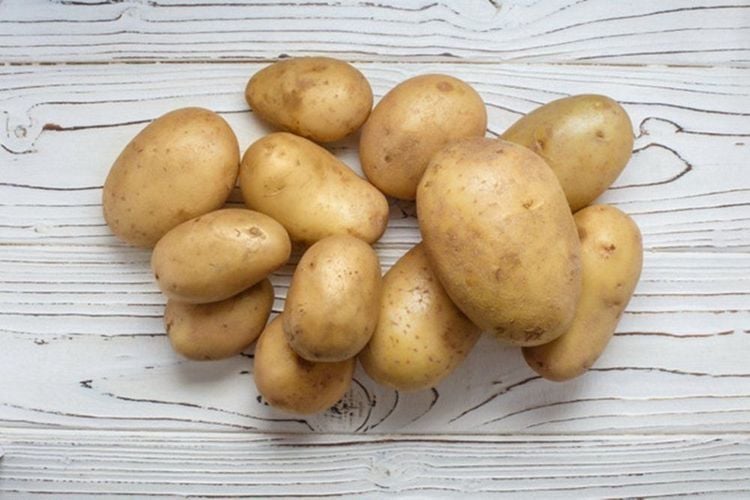
Cách bảo quản khoai tây là không nên để trong tủ lạnh quá lâu
4. Place the potatoes in an open bowl or paper bag
Potatoes during storage require air convection to help prevent moisture build-up, which leads to spoilage. To ensure this, the main way to preserve potatoes is to use open containers during the packaging process. Do not use sealed containers without ventilation systems.
If there is no air circulation during storage, moisture escaping from the potatoes will accumulate inside the container and create favorable conditions that promote the growth of mold and bacteria that cause spoilage or cause the potatoes to deteriorate. sprouted west.
5. Do not wash potatoes before storing
Potatoes are grown in the ground so sometimes they still retain dirt on the skin. You can clean and wash potatoes before putting them in storage, but keep in mind that they will keep longer if dry. Washing potatoes will add moisture, cause potatoes to germinate or promote the growth of fungi and bacteria during storage.
6.Stay away from other products
Many fruits and vegetables release ethylene gas when ripe to help soften the fruit and increase its sugar content. Storing close to these fruits and vegetables can make potatoes sprout and soften faster.
Therefore, to keep potatoes longer, you should store them away from foods such as: Bananas, apples, onions and tomatoes... Although there are no studies looking at the best way to store potatoes. but creating good ventilation conditions during storage can be more effective.
7. Store potatoes with slicing and soaking in water for up to 1 day
After peeling and slicing, raw potatoes will quickly discolor when exposed to air. You can prevent discoloration by soaking potato slices in water. The water will protect the potatoes under normal atmospheric conditions and prevent enzymatic browning.
However, if you leave potatoes for more than 24 hours, they can absorb too much water and are not good for the taste when cooking. This method of storing potatoes should only be used in case they will be cooked within the day. For longer storage, consider vacuum packaging. Potatoes that are packaged in a vacuum sealed bag will keep for up to a week in the refrigerator.
8. Cooked potatoes can be stored in the refrigerator for a period of several days
Processed potatoes can be watery or mushy because the starch changes shape and releases water as they cool. Cooking and refrigerating potatoes also increases the formation of resistant starch, a type of carbohydrate that humans cannot digest and absorb. This can be a good thing for people with blood sugar issues, as it lowers the glycemic index by about 25% and causes blood sugar to spike after eating.
Resistant starch also promotes gut health benefits. This is because gut bacteria ferment and produce short-chain fatty acids. These acids help keep the lining of your large intestine healthy.
Although cooked and cooled potatoes have some health benefits, they should be eaten within 3 or 4 days to avoid spoilage and food poisoning.
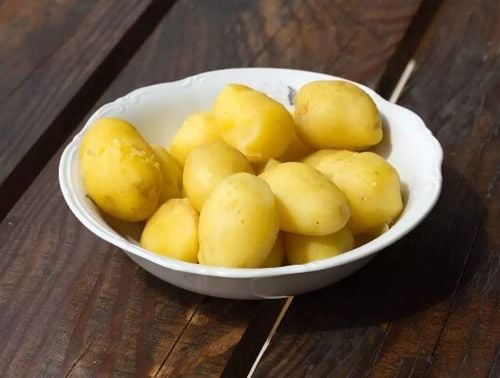
Bạn có thể tham khảo cách bảo quản khoai tây đã nấu chín trong tủ lạnh
9. Store cooked leftovers in the freezer for up to a year
You can store cooked potatoes in the freezer for several days. Cooked leftovers can be stored in the freezer without turning brown, as the cooking process destroys the enzymes responsible for the discoloration.
Like all frozen products, potatoes will last the longest if they are protected from air while in the freezer. Therefore, it is necessary to use plastic bags, containers or remove all the air before storing potatoes.
Research on how to store potatoes in the freezer shows that cooked, frozen potato products can last up to 1 year without any appreciable change in quality. When you're ready to eat, let them defrost in the refrigerator overnight before heating and serving.
10. Tips for choosing good potatoes
Potatoes will last the longest if they are fresh and healthy when purchased. When choosing, look for the following:
Firm to the touch: Soft potatoes have begun to degrade, so look for those that are firm and bright. Smooth skin: Potatoes damaged by cold temperatures can cause pitted skin and brown centers. So use potatoes with a smooth texture. No bruises or injuries: Sometimes potatoes can go bad during harvesting or shipping. Avoid visible wounds, as they will cause the potatoes to go bad faster. No Sprouts: Sprouts are one of the first signs of spoilage, so avoid buying sprouted potatoes. In short, storing potatoes properly can extend their shelf life and reduce food waste due to spoilage. Store uncooked potatoes in a cool, dark place with plenty of air to circulate for longer. When slicing potatoes, water can be used to prevent browning. Cooked potatoes can be stored in the refrigerator for up to 4 days, or 1 year in an airtight container in the freezer.
Please dial HOTLINE for more information or register for an appointment HERE. Download MyVinmec app to make appointments faster and to manage your bookings easily.
Reference source: healthline.com



